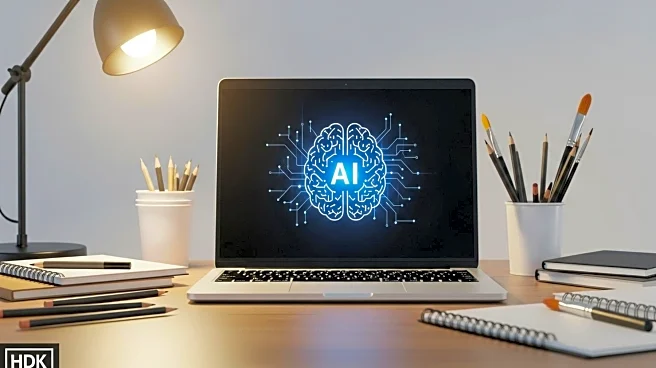What's Happening?
Jessica Camilleri-Shelton, a freelance copywriter and content creator, has significantly transformed her career and personal life by integrating AI tools into her workflow. Over the past two and a half years, she has doubled her income and freed up substantial time to focus on building her business and social media presence. Camilleri-Shelton utilizes various AI tools, including ChatGPT, Claude, Perplexity, Fathom, and Canva, each serving distinct purposes such as task management, creative writing, research, client meeting management, and graphic design. These tools have enabled her to enhance productivity, creativity, and efficiency in her work, allowing her to juggle multiple priorities effectively.
Why It's Important?
The integration of AI tools into professional workflows represents a significant shift in how individuals can optimize their productivity and creativity. For freelancers and small business owners, AI offers the potential to streamline operations, reduce time spent on mundane tasks, and focus on strategic growth. Camilleri-Shelton's experience highlights the broader implications of AI adoption, suggesting that individuals who leverage these technologies can achieve substantial career advancements and personal growth. This trend may lead to increased competitiveness in the freelance market, as more professionals adopt AI to enhance their offerings and efficiency.
What's Next?
As AI tools continue to evolve, professionals like Camilleri-Shelton may further refine their use of these technologies to maximize benefits. The ongoing development of AI capabilities could lead to more sophisticated applications, potentially transforming industries beyond freelance writing. Stakeholders, including tech companies and educational institutions, may focus on providing training and resources to help individuals harness AI effectively. Additionally, ethical considerations regarding privacy and reliance on AI for decision-making may prompt discussions on best practices and guidelines for responsible AI use.
Beyond the Headlines
The widespread adoption of AI tools raises important ethical and privacy concerns. As individuals increasingly rely on AI for personal and professional tasks, the line between human judgment and machine assistance becomes blurred. Camilleri-Shelton's approach to setting boundaries around AI use, such as avoiding sharing sensitive information and fact-checking outputs, underscores the need for users to remain vigilant about privacy and data security. Furthermore, the potential for AI to replace certain job functions may lead to discussions on the future of work and the importance of human creativity and expertise in an AI-driven world.









